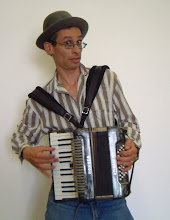* * * * * *
The Genius of Yiddish
One of the small oddities of
Yiddish is the situations where a German word and a Hebrew word have similar
sounds and similar meanings. I’ve always enjoyed noticing those, and recently
I came across a new one. Here is a short list of some of my favorites:
Schlachten/Shekhten. The German
word for slaughter is similar to the Hebrew. A schlacht-feld is a battle-field in both languages, but only the
Germans call a slaughterhouse a shlacht-haus
(SHLAKHT-HOWZ): by us it’s a shekht-haus
(SHEKHT-HOYZ). A ritual slaughterer is of course a shoykhet. (If you read the Kurt Vonnegut novel, you might remember
that the prisoners survived the Allied bombardment of Dresden in the safety of Schlachthaus Fünf. And you might also
note that when I transcribe German words for a general audience, I like to
break up the compound words with hyphens which the Germans find quaintly
superfluous.)
Bühne/Bimah. The stage where the
German actor performs (BEE-neh) is the podium in the synagogue where the cantor
does his performance. The Hebrew National Theater in Mandatory Palestine was
called Ha-Bimah.
Rausch/raash. A commotion is
almost the same in both languages. (The German rausch (ROWSH) is pronounced ROYSH in Yiddish.)
Narr/na’ar. The homely German fool is confused with the Hebrew youth, familiar to us from the Birkat
Hamazon, “na’ar hayiti ve-gam zakanti…”. But the quality that most of us think
of as naarischkeit should more correctly
be written narrischkeit.
Sach (hard “s”) vs sakh (soft
“s)”. The Hebrew quantity is used in
context similar to the German thing,
matter. It gets more confusing when you consider the European moss (measure, German Maß with an “ess-tset”), masse (mass, a completely different word)
and the Hebrew mase (load or burden,
spelled with a sin), all three of
them present in Yiddish.
Kunde/koyne/kundes: The German kunde meaning “customer” is close to the
Hebrew koyne with the same meaning,
and even closer to the Hebrew for joker.
Schier/shiyur: This pair is so
close you find them interchanged among even the most educated Yiddish writers
in classical times. Schier nischt is
used idiomatically as the equivalent of the English “all but”, as in “sie is
schier nischt gestorben vun kharpeh un bushah” (she all but died from
embarrassment). Alternately, she might have been embarrassed “ohn a
shiyur” – “without (or beyond) measure”, where this time it is the Hebrew word
which is used idiomatically. Note that a shiyur
can also be a Rabbi’s lecture on a passage from the Gemara; in this instance,
the usage seems to suggest that vast knowledge is something that must bne
portioned out in careful measures.
Kapoyer/kapuris: Sometimes it is
a Slavic word which crosses paths with the Hebrew. If something makes your hair
stand on end (azh die hâar is gestellt auf kapoyer) you are using the Russian
word for topsy-turvy, not the Hebrew word for the chicken which you swing above
your head on Yom Kippur. (And if you think I am being disrespectful in my characterization
of this solemn ritual, you might note that the word kapuris is the punch line of countless jokes in Yiddish. So it’s
not just me.)
Finally, from chickens to ducks:
here’s the one I just learned this week. We have an odd expression which is
used to “explain” something that doesn’t make any sense at all: “Derüber
(derIBBer) gehen die katchkehs borvuss un die gändz (GENZ) ohn pludern”
(Therefore the ducks go barefoot and the geese without trousers). Where does
this come from? It seems that borvuss
(German barfuss, barefoot) is a
near-homonym with the Hebrew barvaz, meaning
“duck”. It is the unique genius of the Yiddish language that random
happenstance of this type can become the source of such a colorful and humorous
expression.

No comments:
Post a Comment